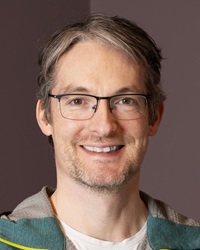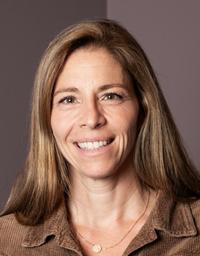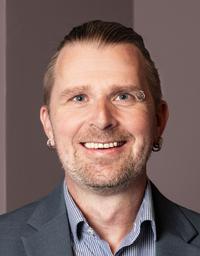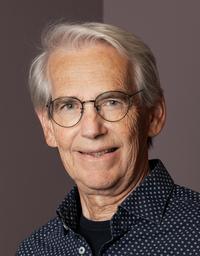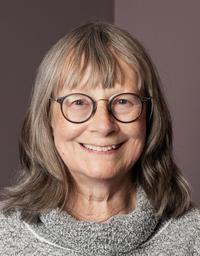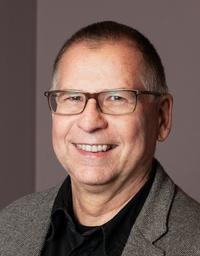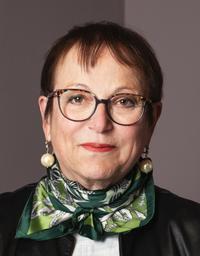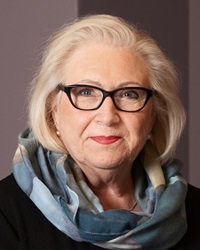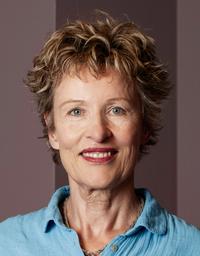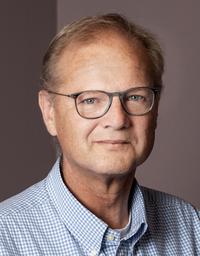Sander Botter
As a research scientist I often work on clinical trials, so I’m familiar with their structure and ethical framework. For me it’s important to make the technical elements of such trials easier for patients to understand, so that they understand why it’s so important for them to participate. This is the only way for us to make progress in treating cancer.
Tourane Corbière
My skills as an engineer and teacher enable me to understand complex problems and translate them into language that is accessible to non-experts. As a researcher I am used to reading and commenting on scientific studies. I can contribute my professional skills to the Patient Advisory Board in the same way that I can share my own experience of cancer. As a patient I want to understand how cancer works and what treatment options are currently available. It’s only sensible to make use of my own experience of cancer for the benefit of other patients.
Michael Emmenegger-Müller
What I like about the SAKK Patient Council is the exchange with other patients, the improvement in access to study results and a better understanding of research. I want to do something for other people affected and perhaps also actively do something against cancer.
Aldo Fiscalini
Life is a roller coaster. I would like to share my experience of cancer, my worries, and my joy with others. In this way I can help other people with cancer and contribute to the continuing development of medicines and to research.
Ursula Ganz-Blättler
As an historian and media studies expert I am particularly interested in questions relating to collective memory. I worked as a journalist for many years, and this helps me to communicate complex issues that arise between physicians and patients in a way that non-experts can understand. I had breast cancer in 2010, and a chronic fatigue syndrome (CFS) that required therapy, and that sent me back to square one in career terms. As a member of the SAKK Patient Advisory Board I am particularly keen for the common side effects and long-term complications of cancer treatments continually to be researched, openly communicated and, wherever possible, reduced.
Bernd Hägele
From the patient's perspective, the speed at which innovations reach clinical practice is the number one priority in terms of research (translational research). At the same time, it would be useful to assess the reasoning behind treatment sequences, even with current standards of care. Simply changing the order of sequences could potentially prove successful. I am pleased to be able to help optimize SAKK's research projects by asking critical questions and offering my perspective, and to help swiftly translate their research findings into insights that can be used to treat patients.
Helga Meier
The guiding principle of my involvement in SAKK is to give the Patient Advisory Board a public face. I have many years of experience as the partner of a man with a rare type of solid cancer and as the head of an internationally networked patient organization. This helps me not only to understand cancer as a disease but also to play an active role in networking patients, physicians, research, and organizations representing cancer patients. The end result benefits not only patients but everyone involved.
Rosmarie Pfau
Patients are experts in their disease, and I am convinced that this experience makes a major contribution, and should be used to improve patients’ quality of life. I want to continue playing my part and to give a more powerful voice to patients’ needs. I want to help encourage other patients to become recognized partners in scientific and ethical committees. I’m willing to learn more about the practical side of drug research and development, and want to make a worthwhile contribution in this field.
Isabelle Roos
As a biochemist and in my professional life, I gained experience in medical trials, registration of drugs, giving relevant medical training and responding to medical enquiries. As a cancer patient I have experienced the health care system from a patient’s perspective. I would like to pass on my experience to patients and help them to assert their right to be informed and participate in medical decisions.
Lorenz Tanner
During my illness I learned that patients are often fighting a losing battle when it comes to consultations with healthcare specialists. Patients frequently have difficulty understanding what is happening to them, since medical professionals tend to speak their own language. In many cases, you need to be persistent in order to be given a satisfactory explanation. As a member of the association lymphome.ch I am also aware of how important it is to seek information not only before and during treatment. A broad level of support is also essential during recovery, because although you may have survived, your life is now completely different to how it was before. I would like to share these experiences and incorporate them into studies as there is still very little information available on the topic of "I'm cured – what now?" and on the various side effects of treatment.
